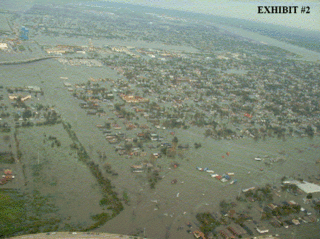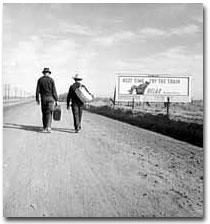Oh, Orleans Parish Prison - They Left Us Here to Die

"Well have you seen my green eyed son
He shot a man down with a sort of gun
And they found him down by the ponchartrain
Where they cuffed his hands with a big iron chain
Orleans Parish Prison won't you free my green eyed son
I heard him say as they led him away sorry for what he's done
Orleans Parish Prison won't you free my green eyed son."ORLEANS PARISH PRISON (Dick Feller), sung by Johnny Cash
"According to the ACLU, the Orleans Parish Prison fell into chaos in the five days after Hurricane Katrina struck New Orleans on August 29. As the water rose in the prison buildings, deputies deserted en masse, leaving behind prisoners in locked cells. Prisoners broke windows and either leapt out or set fire to pieces of clothing and held them outside the windows to signal to rescuers. The prisoners spent days without power, food or water, some standing in sewage-tainted water up to their chests or necks. " (from ACLU press release, NY - Oct 6, 2005)
http://www.aclu.org/Prisons/Prisons.cfm?ID=19225&c=121
According to inmates interviewed by Human Rights Watch, they had no food or water from the inmate’s last meal over the weekend of August 27-28 until they were evacuated on Thursday, September 1. By Monday, August 29, the generators had died, leaving them without lights and sealed in without air circulation. The toilets backed up, creating an unbearable stench.
“They left us to die there,” Dan Bright, an Orleans Parish Prison inmate told Human Rights Watch at Rapides Parish Prison, where he was sent after the evacuation.
As the water began rising on the first floor, prisoners became anxious and then desperate. Some of the inmates were able to force open their cell doors, helped by inmates held in the common area. All of them, however, remained trapped in the locked facility.
“The water started rising, it was getting to here,” said Earrand Kelly, an inmate from Templeman III, as he pointed at his neck. “We was calling down to the guys in the cells under us, talking to them every couple of minutes. They were crying, they were scared. The one that I was cool with, he was saying ‘I'm scared. I feel like I'm about to drown.' He was crying.”
The ACLU of Louisiana joined the ACLU National Prison Project in filing official requests last month to determine if prisoners were abandoned to die in the Orleans Parish Prison during and after Hurricane Katrina, and for further details on the prisoner evacuation plan. (from http://www.commondreams.org/news2005/0923-01.htm)
Orleans Parish Prison is the ninth largest in the country, according to the U.S. Bureau of Justice Statistics. Under the terms of a longstanding class action lawsuit over prison conditions, the ACLU has acted as counsel for the more than 6,500 OPP prisoners since 1989. In that capacity, the ACLU has sought to enforce court orders regarding the medical and mental health and environmental conditions of the prisoners.
(from http://www.commondreams.org/news2005/0928-14.htm)
More on this story: http://www.democracynow.org/article.pl?sid=05/09/27/1433256











